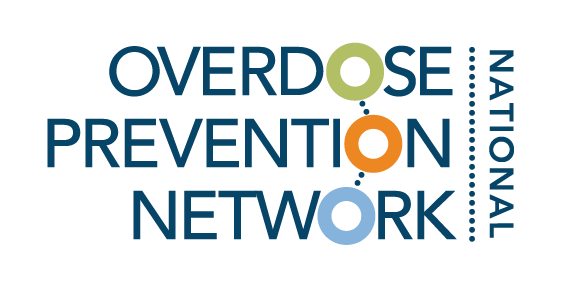
Resource Library
Toolkits, guides, and other resources vetted by experts in overdose prevention.
Filter by category and tags, or search by keyword (ex. COVID-19, harm reduction).
Toxicology Investigators Consortium (ToxIC)
The Toxicology Investigators Consortium (ToxIC) is a multicenter toxicosurveillance and research network. As a toxicosurveillance network, ToxIC can detect new and emerging drugs of abuse, adverse effects of new medications in the post-marketing phase, and emerging toxicological threats. On their webpage you can explore their various projects like the Fentalog Project, learn more about ToxIC, and more.
SAMHSA Youth Substance Use Prevention Month and Substance Misuse Prevention Month Toolkit
In the month of October, we focus on youth substance use prevention and substance misuse prevention. 2023 marks the 10th anniversary of the "Talk.They Hear You." campaign. Prevention efforts enhance protective factors and minimize risks in individuals, families, schools, communities, and society at large. Extensive research and community-based experiences over the years affirm the effectiveness of prevention strategies, see the toolkit for more information, campaign materials, and more.
Appalachia Opioid Remediation Database
The Appalachia Opioid Remediation (AOR) database is a living resource created and made available by the Community Education Group, and it catalogues information about how the 13 states of Appalachia are managing and spending funds received from litigation settlements with opioid manufacturers, distributors, and retailers.
Overdose Prevention Centers (OPCs)
The Drug Policy Alliance has created a webpage overviewing information on overdose prevention centers including information on what they do, how they work, and have handouts and a short video to learn more.
COPN Accelerator 4.0 Program: Key Considerations for Centering Equity in Overdose Prevention
This handout provides the key considerations for centering equity in overdose prevention based on Dr. Lauren Powell's presentation to the COPN Accelerator 4.0 Coalitions.
Sustainability Tools and Tips
In this video, Co-Director of the Center for Health Leadership and Impact, Karya Lustig presents sustainability tools and tips for coalitions to implement into their work to strengthen their internal and external efforts to maximize their impact.
Addressing Opioid Use Disorder in Emergency Departments: Expert Panel Findings
The National Council for Mental Wellbeing hosted a technical experts’ panel (TEP) to identify best and promising practices to engage individuals surviving overdose and assist individuals with opioid use disorder (OUD) presenting in emergency department (ED) settings. This report identifies key policy and practice recommendations informed by existing research, case examples and findings from the TEP.
Training and Educating Public Safety to Prevent Overdose Among Black, Indigenous, and People of Color Communities
To better understand the training and education needs of public safety personnel related to preventing overdose in BIPOC communities, and to inform the development of future trainings, the National Council, with the support of the CDC, conducted an environmental scan that included a literature review and a series of key informant interviews and roundtables. The key findings from these activities are explained in this guide.
Overdose Prevention and Response in Community Corrections: An Environmental Scan
The National Council for Mental Wellbeing, with support from the Centers for Disease Control and Prevention, conducted an environmental scan to determine how overdose prevention and response efforts are currently implemented in community corrections. This effort included a literature review, 19 key informant interviews and a roundtable discussion with a diverse group of individuals with experience in community corrections, overdose prevention or harm reduction.
Supporting Telehealth and Technology-assisted Services for People Who Use Drugs: A Resource Guide
This resource guide created by the National Council for Mental Wellbeing (National Council) aims to help harm reduction organizations, SUD treatment providers and other organizations that serve PWUD overcome challenges associated with implementing telehealth and technology-assisted services and leverage these advances to help improve the health and wellness of PWUD.
Getting Candid: Framing the Conversation Around Youth Substance Use Prevention
The National Council for Mental Wellbeing (National Council) created this guide with the purpose of equipping providers with substance use prevention messaging and share guidance on how to effectively deploy this messaging with middle and high school age youth.
Fostering Resilience and Recovery: A Change Package
To better address trauma in primary care, Kaiser Permanente and the National Council for Mental Wellbeing (National Council) launched the Trauma-Informed Care Primary Care: Fostering Resilience and Recovery initiative to develop, test, disseminate and scale a field-informed Change Package. Implementing trauma-informed approaches within primary care marks a fundamental shift in care delivery that supports improved utilization of services, improved patient outcomes, increased staff satisfaction and healthier work environments.
Partnership Mapping Tool Addendum
Strong partnerships are essential to the success of any coalition. Use this addendum tool in addition to the Partnership Mapping Tool to assess your coalition infrastructure, identify critical community collaborators and power brokers, and further how these partners can support coalitions’ overdose prevention strategies.
Public Awareness Campaigns
The CDC generates a number of educational campaigns that you can utilize in your community. Use this webpage to see the variety of awareness campaigns and materials available.
Opioid Overdose Basics
The National Harm Reduction Coalition’s training guide on opioid overdose basics provides an overview of opioid overdose basics, what is an overdose?, understanding naloxone, overdose risks & prevention, recognizing opioid overdose, responding to opioid overdose, and overdose FAQs.
What is Substance Disorder?
The American Psychiatric Association’s website provides a succinct overview of substance use disorder (SUD), how its treated, the 13 priniciples of treatment, how to support a family member or friend, and related conditions.
Self-Care Strategies Worksheet
This worksheet was developed by Cypress Resilience Project in partnership with PHI Center for Health Leadership and Impact for the Spring 2022 COPN Convening, which focused on toxic stress and burnout for individuals working in substance use and overdose prevention.
Faith in Harm Reduction
Faith in Harm Reduction is a non-profit organization that fosters opportunities for the co-creation of spiritual community and relationship building in partnership with people who use drugs and other harm reduction community leaders. Through the hosting of events and a growing national network of Faith in Harm Reduction leaders who provide peer to peer support, information sharing, and spiritual care for the harm reduction movement, Faith in Harm Reduction strengthens spiritual resources for harm reduction and intersectional healing and justice movements.
End Overdose
End Overdose is a nonprofit organization based in California. They provide education materials, as well as a way to order free naloxone and fentanyl test strips on college campuses.
Stimulant Safety: Getting Amped Up to Reduce Harms When Using Stimulants
This resource from NASTAD offers education on the reasons people take stimulants, including the potential positive aspects to use and potential risks of use; how to minimize harm, reduce stigma around stimulants, and support peoples’ positive experiences.








